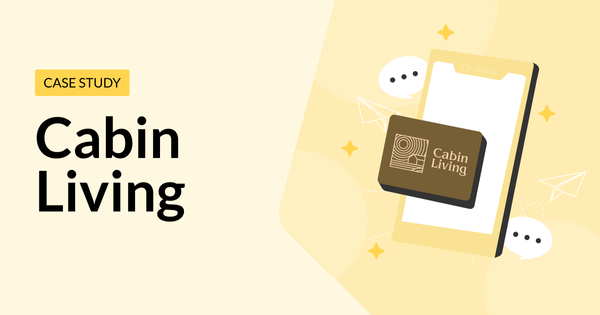The Essential Airbnb Co-Host Guide: Roles, Benefits, and Tips

Running an Airbnb property is a full-time job, as many a host knows. When your business is thriving it makes sense to consider enlisting some help. Alternatively, co-hosting might just be the best way to break into the STR market without having to own property of your own.
Airbnb Co-Hosts: An Introduction
First and foremost, a co-host is a person who manages a listing or multiple listings on behalf of the Airbnb owner.
The co-host or hosts take responsibility and care for the Airbnb home and the guests. They act as a trusted pair of hands that can make all the difference to a successful Airbnb property.
Who Can Be a Co-Host?
Co-hosts can be a family member, neighbors, trusted friends, or professionally hired individuals to help owners manage their vacation rentals better.
Some of the qualities that you should look for in a co-hosting partner are efficient time management, organization, positive attitude, willingness to go above and beyond, multitasking, people skills, and problem-solving.
Your chosen co-host can be a family member if you so desire, but this can complicate the professional relationship. The most important thing is that your Airbnb account and your property listing (or multiple properties) are managed well. Local co-hosts are probably the best choice, as you never know when you’ll need them to drop in to solve a problem at multiple Airbnb listings.
Hosting Responsibilities
There are several ways to share hosting responsibilities.
Here are some of the main ways an Airbnb co-host can help:
- Manage the listing
- Update calendar and pricing
- Handle reservations
- Respond to inquiries or message booked guests.
- Get the space guest-ready
- Welcome guests in person
- Help guests during their stay
- Write reviews
- Get support from Airbnb
- Coordinate cleaning and maintenance
- Restock essential supplies
Things Co-Hosts Cannot Do

Handle Insurance Claims: Co-hosts are unable to file or reply to damage or insurance-related claims through Airbnb's Resolution Center. Only primary hosts or host owners have the ability to make a claim.
Review Transactions: In Transaction History, Co-Hosts can review payout transactions for listings to which they have been added (without being able to view the payout method information). For example, Co-Hosts can check the payout status and see when cancellations or alterations have been reflected.
Taxpayer Information: Co-Hosts cannot access the listing owner’s payout or taxpayer information. And they can’t review the listing owner’s activity traveling on Airbnb as a guest.
Adding a Co-Host on Airbnb
The account owners and Airbnb hosts are the primary Host by default but may designate a co-host to be listed as the primary Host.
- Login to Airbnb
- In Hosting mode, select Listings from the top navigation bar.
- Click on your listing.
- Click on Co-hosts from the menu at the top.
- Click the Invite a Friend button under Host with a Friend.
- Access and permissions
Your transaction history is never accessible to any of your co-hosts, and they all have the same restricted set of rights. You can remove the aforementioned tasks if you decide you don't want your co-host to have access to them.
How Do Hosts Get Paid?
Paying your Airbnb co-hosts is easy. Just as you would add your payout method as an individual host, you can opt for split payment under the “routing rules” option inside your payment method dropdown.
From here, you’ll need the bank details of your co-host so they can receive the payments accordingly. If your co-host isn’t comfortable sharing their bank details, you can collect the total amount and split it outside the Airbnb platform.

Airbnb Co-Host Fees
Airbnb co-hosts typically charge between 10-20% of the nightly rate, excluding cleaning duties. This means that if an Airbnb generates $30,000 annually, a co-host could earn approximately $3,000 to $6,000 per year.
However, suppose your responsibilities include taking care of everything from check-in and check-out to managing guest experience and cleaning. In that case, you could charge up to 25% or a flat management fee.
Because your responsibilities as a co-host will decide your potential earnings, it is your responsibility to sign an Airbnb co-host agreement with the primary host at a reasonable price. Naturally, though, the more you work, the more money you make.
Airbnb Co-Host Agreement
Although hosts and co-hosts can draft their own unique agreement, Airbnb needs a co-host to sign the Terms of Service policy.
Making sure that all conditions and expectations are spelled out in detail is crucial. For instance, hosts and co-hosts must decide how to pay the co-hosts, define their incomes, and establish clear roles and duties for hosting.
You can use or alter a pre-made Airbnb co-host agreement or hire a lawyer to draw up an agreement for you. But that will come at an additional cost.
Key Points to Include in a Co-Host Agreement

Hosting Responsibilities
Your agreement should stipulate who owns the property, the property address, who is the co-host, and the point of contact.
The list of responsibilities and tasks above is extensive. Your co-host agreement should specify who takes care of which duties.
It should also actively state the work timeframes of the co-host. Whether they will work occasionally or if they will be working during each booking.
The co-host cannot manage payment and transaction history and taxes, and the agreement needs to be clear with the roles of the Host.
Earnings
The Co-host’s percentage and payment method need to be outlined in the agreement. It should also detail when payment happens so your time as a busy Airbnb host is preserved.
Expenses
Ideally, payments for the vacation rental should be covered by rental revenue from hosting. Owners are usually responsible for the utilities and maintenance of their properties.
Expense payment needs to be discussed before welcoming guests with a co-host because no one wants to have to pay unfairly.
Liability and Safety
Accidents, unfortunately, can and do happen no matter how many precautions you take. Therefore, it’s essential to know beforehand who is responsible for the accident and how payment will be dealt with when something needs fixing.
Added to this, stipulate who is covered by your vacation rental insurance. Monthly payments to the insurance company must also be worked out in the expenses portion of the agreement.
The agreement should detail who needs to check safety regulations and the ongoing compliance measures required for the vacation rental unit.
Make sure your Airbnb co-host agreement takes into account all occurrences.

Becoming an Airbnb Co-Host
While the benefits of having a co-host may be obvious to listing owners and property managers, the program is also a great way to make money off the short-term rental market without even having to invest in property!
You can start by creating a personal site with a resume that showcases any previous co-hosting or hospitality experience, or reach out to a family member or neighbor who might be interested in your services.
Once you've been added as a co-host by the primary host, you will be given your own co-host profile.
Co-Host Network
In the winter of 2024 Airbnb introduced the co-host network, a new way to connect hosts with high quality local co-hosts and provide a whole range of tools for co-hosts to help listing owners and make sure they keep their status and revenue high. As a co-host, you can create a customizable profile showcasing your hosting expertise, such as handling guest communication, setting dynamic pricing, managing reservations, and coordinating maintenance.
The platform allows co-hosts to set their rates and select the services they offer, giving you flexibility and control. To join, you’ll need prior hosting experience and a strong track record of reviews. Currently available in select countries, the program is set to expand in 2025, making it an ideal time to join this growing community.

Conclusion
Even experienced hosts need a little help, especially when managing multiple listings. But co-hosting is also a great way to break into the short-term rental market. There are plenty of management tools for co-hosts out there, and iGMS can help automate the process from guest communication to cleaning.






